- Home
- Blake Banner
Dawn of the Hunter - An Action Thriller Novel (Omega Series Book 1)
Dawn of the Hunter - An Action Thriller Novel (Omega Series Book 1) Read online
DAWN OF THE HUNTER
Copyright © 2017 by Blake Banner
All rights reserved.
Without limiting the rights under copyright reserved above, no part of this publication may be reproduced, stored in or introduced into a retrieval system, or transmitted, in any form, or by any means (electronic, mechanical, photocopying, recording, or otherwise) without the prior written permission of the author of this book.
This is a work of fiction. Names, characters, places, brands, media, and incidents are either the product of the author’s imagination or are used fictitiously. Any resemblance to actual events, locales, or persons, living or dead, is coincidental.
This eBook is licensed for your personal enjoyment only. This eBook may not be re-sold or given away to other people. If you would like to share this book with another person, please purchase an additional copy for each person you share it with. If you’re reading this book and did not purchase it, or it was not purchased for your use only, then you should return it and purchase your own copy. Thank you for respecting the author’s work.
JOIN MY NEWSLETTER
ONE
TWO
THREE
FOUR
FOUR
FIVE
SIX
SEVEN
EIGHT
NINE
TEN
ELEVEN
TWELVE
THIRTEEN
FOURTEEN
FIFTEEN
SIXTEEN
SEVENTEEN
SEVENTEEN
EIGHTEEN
NINETEEN
TWENTY
TWENTY ONE
TWENTY TWO
TWENTY THREE
TWENTY FOUR
TWENTY FIVE
ALSO BY BLAKE BANNER
JOIN MY NEWSLETTER
I try to publish new books often. Sometimes even two a month. I wake up, drink coffee, write stories, sleep, then repeat.
If you'd like to be notified when a new book hits the digital shelves, sign up below and I'll give you a quick heads up with direct links when that happens. Nothing more. Nothing Less.
JOIN MY NEWSLETTER
(No Spam. Ever.)
One
Am I bitter? Yeah, I’m bitter. Sometimes people ask me if I have lost my humanity. I tell them, not yet, but I’m working on it. I don’t like humanity. I don’t like people. There is the odd exception, but that’s what they are – exceptions. That’s why, when I came home to the States after ten years, I moved to the most remote, unpopulated State in the Union. Wyoming.
I like it here. It’s a place where you can mind your own business and people—those that there are—let you get on with it, provided you keep your nose out of theirs. That suits me fine.
But the guy who rolled up in front of my workshop that morning in his Cadillac CTSV sedan was not an exception. He was not minding his own business and he sure as hell wasn’t going to let me mind mine. He had it written all over his Aryan face, crew-cut platinum hair and his three thousand dollar Italian suit. I assumed his eyes were pale blue, but they were concealed behind very black Wayfarers.
You don’t see a lot of Cadies in Boulder Flats, so when it rolled into my lot, off Boulder Flats Road, I had an idea where it had come from and who had sent it. And when the driver got out, I was sure.
“Lacklan Walker?”
“Who are you?”
He held out his hand. “Ben Smith. I work for your father.”
I looked at his hand and then at his black shades. “What do you want?”
“Your father wants to see you.”
“I don’t want to see him.”
He looked up at the sky. “That’s what he said you’d say.”
“He was right. Is there anything else?”
“He told me to tell you he was dying.”
I walked away from him back into my shed, among the smell of engine oil, tools and old rags, where I felt at home. He followed me and stood silhouetted in the doorway, looking at the car I was working on. On the outside it looked like a matte black 1968 Mustang Fastback. That was the chassis it had. But what it had under the hood was something different.
“Sweet ride. Mustang ’68?”
“Zombie 222, modified.”
“I’ve spoken to the doctor myself. He has maybe six months, maybe less.”
“What does he want from me?”
He sighed and removed his shades. His eyes were pale blue. For a moment he looked human. He moved to my workbench and rested his ass against it. “Do you want me to relay what he said, or do you want my opinion?”
I shrugged. “Neither, but go ahead, let’s have both.”
He stared at me, like he was trying to decide whether to send me to hell or not. “My opinion is that he has realized only now that he is not immortal, and that has focused his mind. He’s realized that he has valued the wrong things in life, and now he doesn’t know how to make amends. So he’s reaching out to you, hoping it’s not too late.”
“They teach you that kind of shit on the CIA’s Being a Human Being 1-0-1 course?”
“No, I learnt it myself, watching a lot of people die. You don’t know me, Lacklan.”
“So that’s your opinion. What did he say?”
“He said he wants you to help Marni. She’s in serious trouble.”
I went cold inside. I walked around the car till I was only a couple of feet away from him. Outside the birds were singing in the early September sunlight. I could hear a dog barking across the fields, a diesel grinding down the road. But it felt unreal in the darkness of the barn, with this guy staring at me with his arms crossed, his black shades perched on his head.
“What kind of trouble?”
“You need to ask him that.”
“Do you know?”
He shook his head. “And if I did, I wouldn’t tell you.” He shrugged and looked out at the sunshine. “But if she was in trouble with the law, or if it was financial…” He looked back and smiled at me. “He wouldn’t call on you, would he? He’d call on your brother, Bob. So I’m guessing it’s something that requires your special talents.”
“Get out of my house, Mr. Smith. Tell my father I’ll be there.”
“He asked me to take you.”
“I’ll make my own way.” I waited. He watched me. I said, “Leave.”
He thought about it, then stood. “He’s expecting you tonight, tomorrow at the latest.” He waited for an answer, but I had nothing to say. He shrugged. “I’ll see you in Boston, Lacklan.”
He walked out into the sunshine and climbed into his Caddie. I stood at the door of my shed and watched him cruise out of sight down Boulder Flats Road. Something, some deep instinct, told me someday I’d have to kill him. And he wouldn’t be easy to kill.
I spent half an hour putting the finishing touches to the modifications I’d made on the Zombie, extending its range to four hundred and fifty or five hundred miles, and its top speed to 200 MPH. Then I went inside. I made my way up to the attic and pulled out my kit bag. That’s another modification of mine, based on the principle that you can never have too many weapons or too much ammunition. Most of the weapons I use are silent, with the exception of my Smith & Wesson 500, because surprise is the best advantage you’ll ever have, but sometimes you need to blow down a wall.
Beside the Smith & Wesson cannon, the rest of the kit was a pair of field glasses, a take down orange osage bow, with twelve aluminum arrows that formed a removable, rigid frame for the bag, a 9 mm Sig Sauer P226 with six extended twenty round magazines, a Heckler and Koch
G36 assault rifle with twelve thirty-round magazines and a Fairbairn-Sykes fighting knife with a brass, knurled grip. There was also spare 50 grain ammo for the Smith & Wesson, and a pair of night-vision goggles. On top of that, I had a dozen cakes of C4, wrapped in non-descript brown paper, a dozen M5 universal firing devices and a dozen remote detonators keyed to my cell.
I also had a second Sig 226 under my arm and a 232 in my boot. Like I said, you can never have too many weapons.
I slipped the Fairbairn-Sykes in my boot alongside the 232 and carried the kit bag down to the car. I put it in the trunk and went to lock up the house. I had a feeling I wouldn’t be back for a while. On the way out I picked up four hundred Camel cigarettes and my brass Zippo.
I climbed in the Zombie and fired her up. There was no roar, no thunder, no sound at all. This machine delivers eight hundred bph, one thousand eight-hundred foot-pounds of torque straight to the back wheels, and will go 0-60 in just over one and a half seconds. And she is totally silent. Like I said, I favor the silent kill.
I took the 287 down to Rawlins, and then turned east on the I-80. It was going to be a thirty-two-hour drive, so I’d allow myself two hours sleep. I looked at my watch. It was eleven AM. I’d arrive around 9 PM the next day. I put the Eagles on the CarPlay, poked a Camel in my mouth and lit up.
I hadn’t seen Marni for six years. It had been November. She’d come to London to see me for my birthday. Hers was in April. We were both twenty four. Young. We hadn’t seen each other for almost five years—just once in the last ten. And before that we’d been each other’s whole world. I asked myself how that happened. But I knew. I knew how it had happened.
I made it happen.
I could not let her be a part of what I had become. She was everything that was best in a human being. She was kind and decent and honorable, like her father; and like her father she had devoted her life to trying to make the world a better place in whatever way she could. Me? I was a killer, and I had devoted my life to becoming one of the best in my trade. I had risen with honor through the ranks of one of the most lethal regiments on Earth. The British SAS.
She had come to London to ask me to go back, to make a life with her in Boston. I had told her it could never happen. She had pleaded, I had died inside seeing her cry. But I had said no. And we had not seen each other or spoken to each other since. Now my father was using her, the way he used everybody and everything, to further his ends.
I drove throughout the day with a couple of short pit stops at roadside service stations to use the can and get a burger and a beer. I watched the sun go down in the big, flat, open spaces of Nebraska, and drove in deepening darkness, under the vast prairies of stars, through Iowa and into Illinois. There, at two AM, I pulled off the I-80 into the Hilltop Motel and slept in the parking lot for two hours. At four I moved on, silent and fast, along empty roads bathed in the dead light of dawn streetlamps, past Chicago on the shores of Lake Michigan. At eleven I stopped for a late breakfast outside Erie, and then moved on again, through upstate New York and into New Hampshire.
All the while my rage was mounting: against life for betraying all the hope and dreams that it breeds in you when you’re a kid; and against my father, for the same reasons; for that, and for using his own mortality, and Marni, to manipulate me and seed fear in me.
The Zombie will do two hundred miles per hour, in total silence, without breaking a sweat. In my mounting rage I must have let my foot get heavy, because I arrived at Weston, just outside Boston, at seven PM, two hours ahead of schedule. If there were cops chasing me on the I-80 to give me a ticket, I wished them luck.
My father lived in a ten bedroom pile in the woods off Concord Road. I wound down the drive in the failing light, among the huge pines and ancient chestnut trees, and parked across from the fountain. The slam of the car door echoed like a shotgun among the autumn woodlands, and I heard crows flapping and cawing through the trees. I climbed the stairs between the two landscaped lawns and pulled the chain that made the bell ring in the servants’ quarters. It was that kind of pile.
Kenny, the butler, who had served my father for the last thirty years, opened the door and looked pleased to see me.
“Mr. Walker, your father is in the library. He told us to expect you.” He stood back to let me in. “Have you any bags?”
“It’s in the trunk Kenny, but I’ll deal with it myself.” I gave him a look heavy with meaning and he almost smiled.
“Very good, sir.”
He led the way to the library, opened the tall, walnut doors and announced me. My father didn’t look up as I stepped into the room. He was sitting in his favorite, old chesterfield, with its scuffed, burgundy leather and chipped, wooden legs. The room was largely dark. There was one lamp on, but most of the light came from the log fire, and washed and flickered across his face. He had a blanket over his knees. I hadn’t seen him in five years, but he had aged twenty in that time. When he spoke, he spoke to the flames.
“Come on in, Lacklan, help yourself to a drink. Grab a chair.”
I wanted to tell him to go to hell, but something stopped me. Maybe it was the need to know what had happened to Marni, maybe it was the fact that he looked as though he was already there. Maybe it was both. Instead I walked to the salver on the map table by the leaded window, and poured myself a whiskey from the crystal decanter; a decanter that was probably worth more than a working man’s monthly salary. I carried my drink to the wing chair opposite my father’s and sat. Now he looked at me. I pulled out a Camel, poked it in my mouth and lit up. I blew out a stream of smoke and looked him in the eye.
“What do you want?”
“I need to tell you what happened, what I did…what I have done.”
“I’m not interested.”
“You have to be interested, Lacklan.”
“Why?”
He looked haggard and raised a hand to pinch the bridge of his nose. His hand was shaking and his skin was gray.
“Because,” he said, “Marni has been abducted.”
Two
I felt the skin on my face go cold. My heart gave a powerful jolt and for a moment the room seemed to rock. When I spoke, my voice was a rasp.
“What are you talking about?”
He nodded, like he was agreeing with something I had said. “The thing is, Lacklan, in order to explain, I need to go back, to tell you what happened, and what I did.”
“Is this your fault? Did you make this happen?”
He nodded, and I could see tears in his eyes. “Yes. It’s my fault. But if you are going to help Marni, you need to set that aside and listen to me.”
We watched each other across the silence. Finally, I asked him, “What did you do?”
He reached out his hand. “Give me one of those damned cigarettes, will you?” I hesitated and his face flushed with sudden anger. “It’s cancer of the liver! It will kill me long before any fucking cigarette does!”
I handed him the pack and the lighter. He lit up and smiled at the Zippo, squinting through the smoke. “Good American lighter. An institution.”
He handed it back and I asked him again, “What did you do?”
He looked grave. “It’s going to be a long night, Lacklan, and I am going to tell you things that you will probably not believe. This isn’t a sentimental need to unburden myself…” He paused, looking into the flames in the fire. “…though it’s true enough I do want to confess to what I have done. But more important, I have to tell you all of this so that you can understand what has happened to Marni.”
“What are you talking about?”
“I am talking about the Omega Protocol.”
“What the hell is the Omega Protocol?”
He shook his head and sucked on the cigarette, like it might give him strength. He inhaled deep and spoke with the smoke escaping from his mouth in small clouds. “It goes back a long way, Lacklan, longer than you can imagine.” He paused, shaking his head, like he couldn’t believe his own thoughts. �
�Certain interests—let’s just call them that for now—certain interests realized, a long time ago, that as a result of the Industrial Revolution, overpopulation was going to become not just a major problem, but the major problem on our planet.”
“That’s Malthus.”
He nodded. “He was one of the first.” He recited Malthus’ proposition: “Population grows exponentially, resources grow arithmetically. Basically, population grows more and faster than food production. Of course, the Industrial Revolution meant that we were able to produce food on a scale that Malthus never dreamed possible, and capitalists crowed that Malthus had been proven wrong, that production could keep pace with population. But at the same time, the very scientific revolution that was generating food on such a vast scale was providing medical advances that were wiping out disease and increasing longevity by almost fifty percent. So as food production boomed, so also did population boom.” He snorted. “Of course, back in his day the population of the Earth was less than one and a half billion. Today we stand at over seven and a half billion, and as Malthus predicted, it is growing almost exponentially. It seems our obsession as a species is to eliminate death, and extend everybody’s lifespan to infinity.”
I smoked and sipped my whiskey and watched him, and wondered if he had lost his mind. As though he had read mine, he glanced at me and smiled. “Don’t worry, I have not gone mad. There is a relevance to all this preamble. Malthus was not the only one to harbor these concerns. There were others, among them a number of powerful industrialists and political philosophers here in the States.” He paused again, staring at the fire, then said, surprisingly, “So there was that.”
He heaved a big sigh and went on: “Then there was Tyndal, in the 1850s, who realized that certain gases, namely those emitted by the burning of fossil fuels, would tend to heat up the atmosphere. Unfortunately, by the time he was able to prove it, there were too many interests at stake—too many people making vast fortunes out of mining and burning those very fuels for anybody to give a damn about what Tyndall had to say.”
He gave a harsh laugh and convulsed into a fit of coughing, waving his hand as though he could dismiss the hacking noise as inopportune and irrelevant.

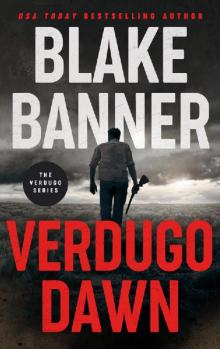 Verdugo Dawn
Verdugo Dawn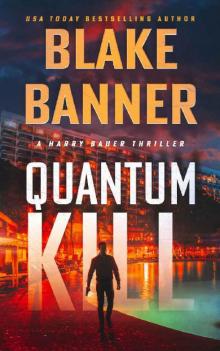 Quantum Kill (Cobra Book 4)
Quantum Kill (Cobra Book 4)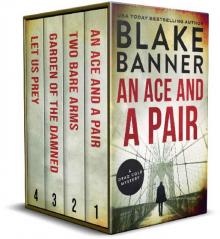 Dead Cold Mysteries Box Set #1: Books 1-4 (A Dead Cold Box Set)
Dead Cold Mysteries Box Set #1: Books 1-4 (A Dead Cold Box Set)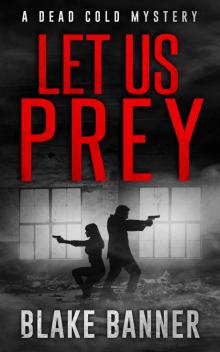 Let Us Prey
Let Us Prey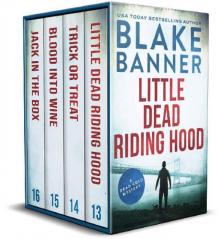 Dead Cold Mysteries Box Set #4: Books 13-16 (A Dead Cold Box Set)
Dead Cold Mysteries Box Set #4: Books 13-16 (A Dead Cold Box Set)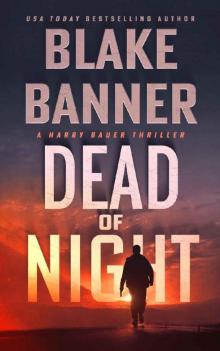 Dead of Night
Dead of Night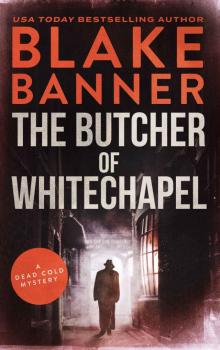 The Butcher of Whitechapel: Dead Cold Mystery 12
The Butcher of Whitechapel: Dead Cold Mystery 12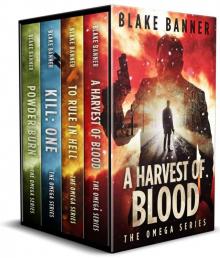 Omega Series Box Set 2
Omega Series Box Set 2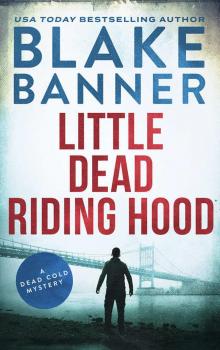 Little Dead Riding Hood: Dead Cold Mystery 13
Little Dead Riding Hood: Dead Cold Mystery 13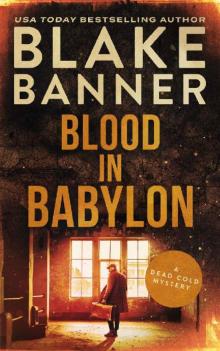 Blood in Babylon
Blood in Babylon Powder Burn
Powder Burn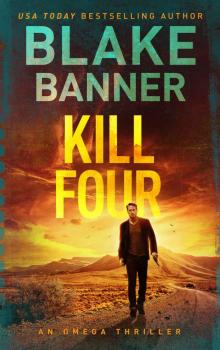 Kill Four
Kill Four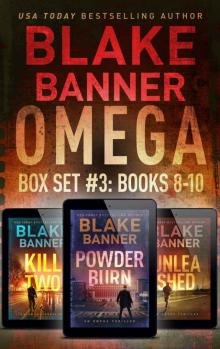 Omega Series Box Set 3
Omega Series Box Set 3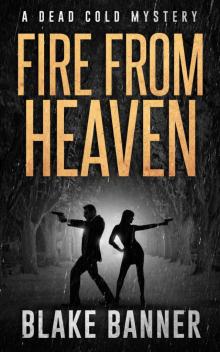 Fire From Heaven: Dead Cold Mystery 9
Fire From Heaven: Dead Cold Mystery 9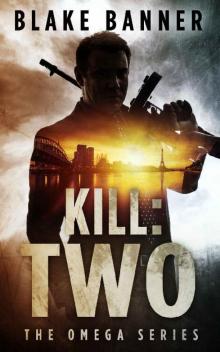 Kill - Two
Kill - Two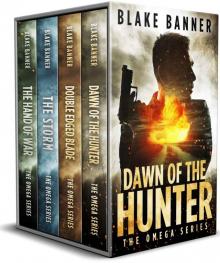 Omega Series Box Set 1
Omega Series Box Set 1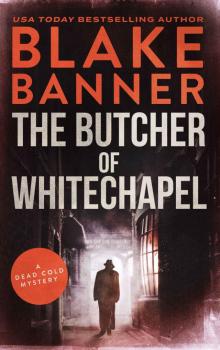 The Butcher of Whitechapel
The Butcher of Whitechapel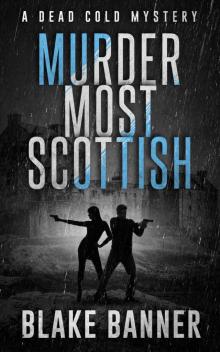 Murder Most Scottish
Murder Most Scottish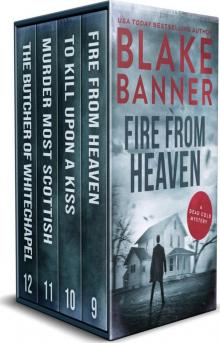 Dead Cold Mystery Box Set 3
Dead Cold Mystery Box Set 3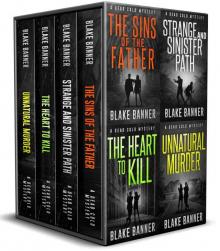 Dead Cold Mysteries Books 5-8
Dead Cold Mysteries Books 5-8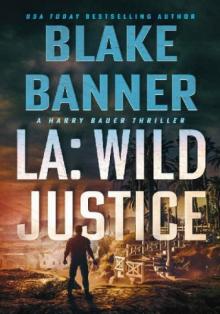 LA
LA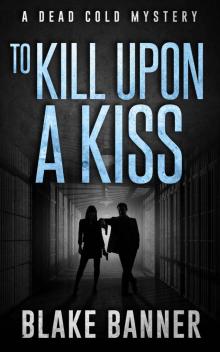 To Kill Upon A Kiss: Dead Cold Mystery 10
To Kill Upon A Kiss: Dead Cold Mystery 10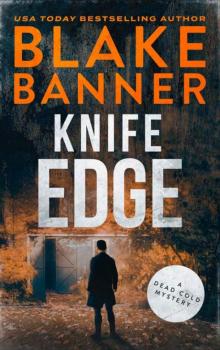 Knife Edge (A Dead Cold Mystery Book 27)
Knife Edge (A Dead Cold Mystery Book 27)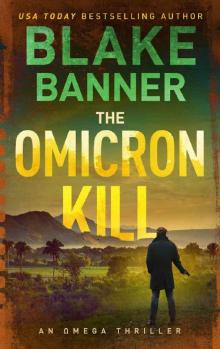 The Omicron Kill - An Omega Thriller (Omega Series Book 11)
The Omicron Kill - An Omega Thriller (Omega Series Book 11)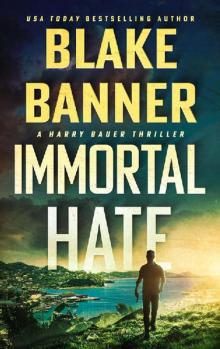 Immortal Hate (Harry Bauer Book 5)
Immortal Hate (Harry Bauer Book 5)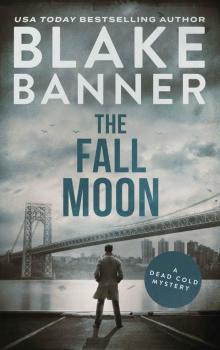 The Fall Moon
The Fall Moon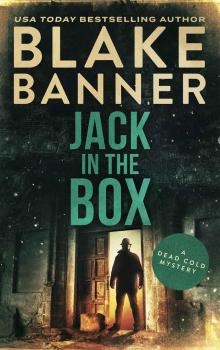 Jack in the Box
Jack in the Box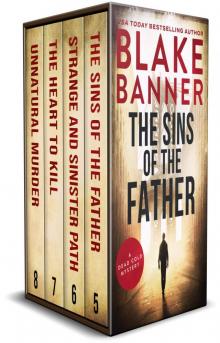 Dead Cold Mystery Box Set 2
Dead Cold Mystery Box Set 2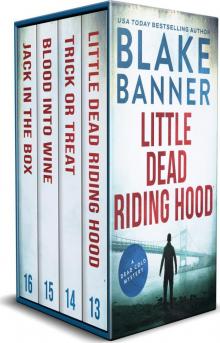 Dead Cold Mystery Box Set 4
Dead Cold Mystery Box Set 4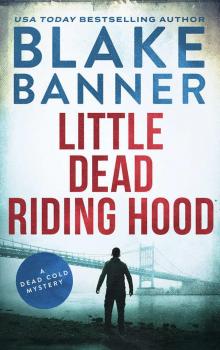 Little Dead Riding Hood
Little Dead Riding Hood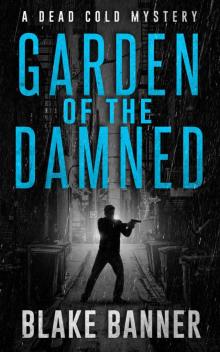 Gardened of the Damned
Gardened of the Damned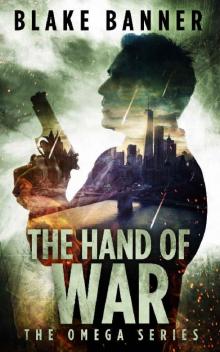 The Hand of War
The Hand of War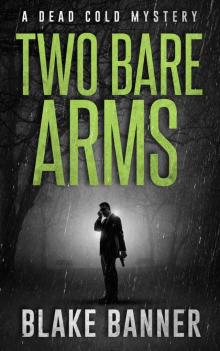 Two Bare Arms
Two Bare Arms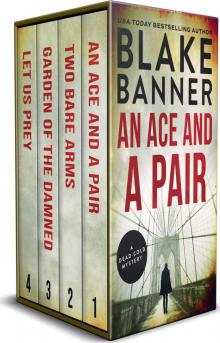 Dead Cold Mystery Box Set 1
Dead Cold Mystery Box Set 1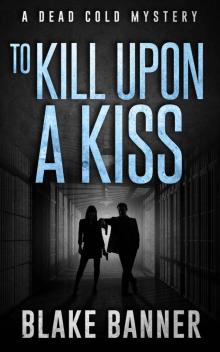 To Kill Upon A Kiss
To Kill Upon A Kiss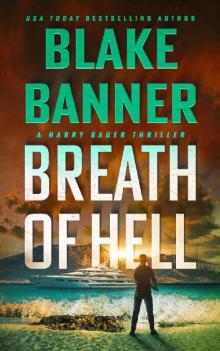 Breath of Hell (Harry Bauer Book 8)
Breath of Hell (Harry Bauer Book 8)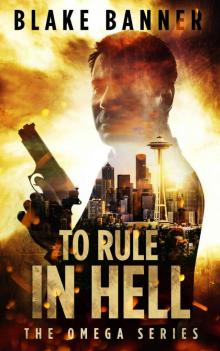 To Rule in Hell
To Rule in Hell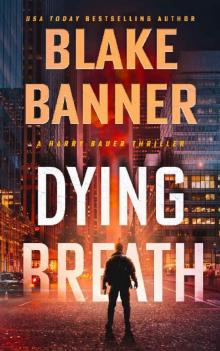 Dying Breath (Cobra Book 2)
Dying Breath (Cobra Book 2)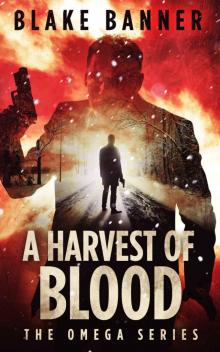 A Harvest of Blood - An Action Thriller Novel (Omega Series Book 5)
A Harvest of Blood - An Action Thriller Novel (Omega Series Book 5)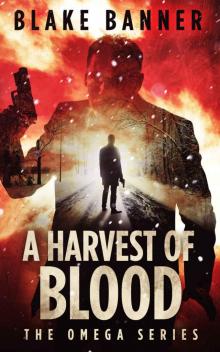 A Harvest of Blood - An Action Thriller Novel
A Harvest of Blood - An Action Thriller Novel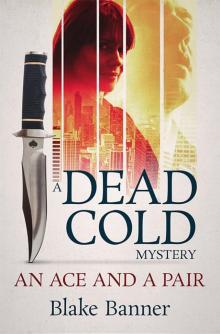 Ace and A Pair: A Dead Cold Mystery (Dead Cold Mysteries Book 1)
Ace and A Pair: A Dead Cold Mystery (Dead Cold Mysteries Book 1)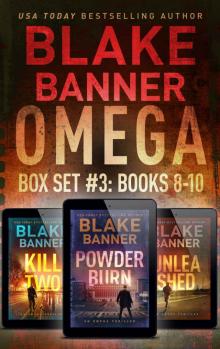 Omega Series Box Set 3: Books 8-10
Omega Series Box Set 3: Books 8-10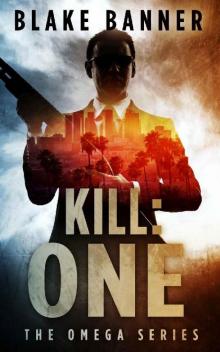 Kill One_An Action Thriller Novel
Kill One_An Action Thriller Novel The Storm
The Storm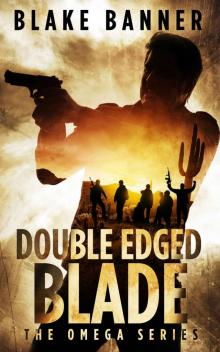 Double Edged Blade
Double Edged Blade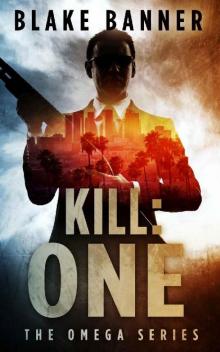 Kill: One - An Action Thriller Novel (Omega Series Book 7)
Kill: One - An Action Thriller Novel (Omega Series Book 7)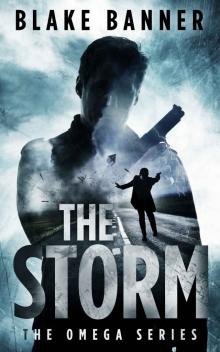 The Storm - An Action Thriller Novel (Omega Series Book 3)
The Storm - An Action Thriller Novel (Omega Series Book 3)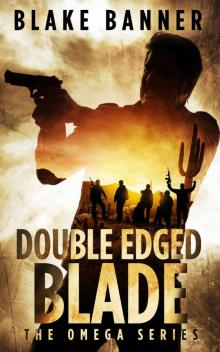 Double Edged Blade - An Action Thriller Novel (Omega Series Book 2)
Double Edged Blade - An Action Thriller Novel (Omega Series Book 2)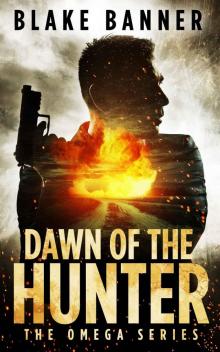 Dawn of the Hunter
Dawn of the Hunter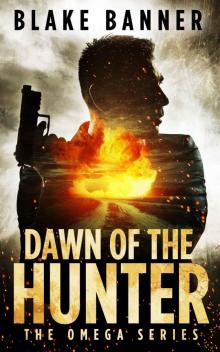 Dawn of the Hunter - An Action Thriller Novel (Omega Series Book 1)
Dawn of the Hunter - An Action Thriller Novel (Omega Series Book 1)